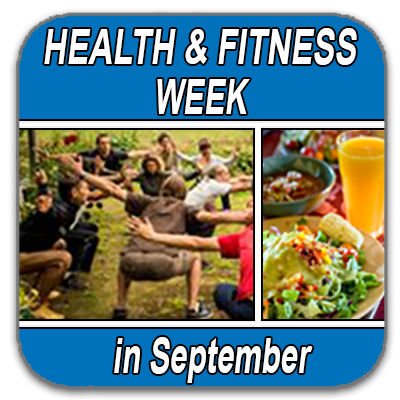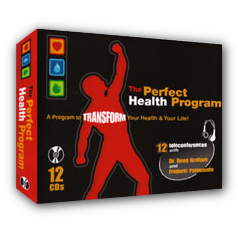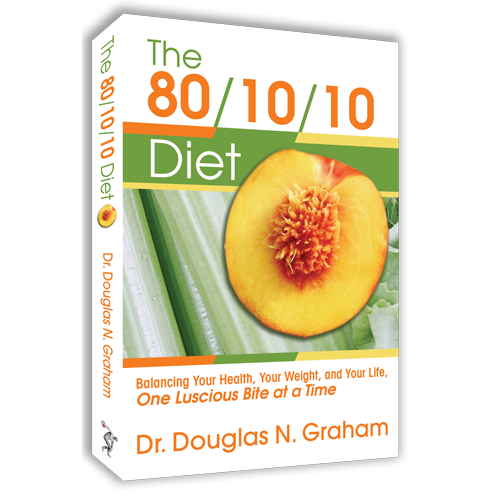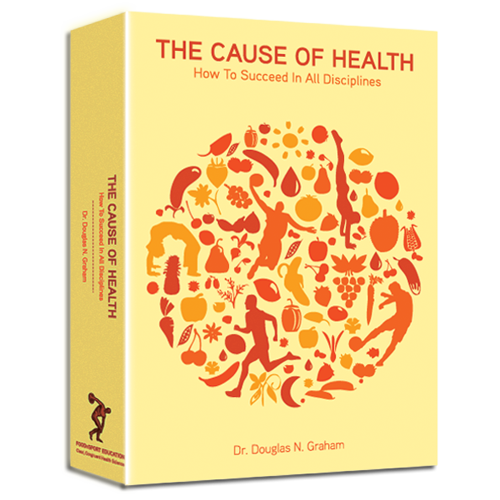Getting Optimal Results
by Dr. Graham

When it comes to athletic performance or the prevention and care of injuries it is easy to lose focus on the importance of nutrition. We can easily become distracted from the big picture of performance by paying so much attention to our training itself that we forget that refueling and recovering are equally important aspects of training. Our perspective on overall health and lifetime fitness can be lost when we pay single-minded attention to the smaller details of physical training. There are so many other factors to keep in mind in order to be healthy and fit: positive mental attitude, sufficient rest and sleep, hydration, etc. To further complicate the issue, neither the immediate nor the long-term influences of nutrition are not always instantly or physically evident in terms of their effects on performance. Yet the role of nutrition is undeniably as important as any other facet to the success of your training program and your overall health.
The Wheel Analogy
If you were building a wagon wheel with sixteen spokes, you would want each spoke to be exactly the same length as the others, or else the resulting wheel would be out of round. Whether a spoke was too long, creating a high spot in the wheel, or too short, resulting in a flat spot, it would adversely affect the balance and overall functioning of the wheel. The same concept can be applied to athletic performance; no aspect is more important than the next. The total program can only be as good as its weakest link.
Strengthen Your Weakness
The interesting thing about this idea is that we often feel that strengthening our strengths will make our total program better, but this is simply not true. Once again, picture the wagon wheel. If you had one spoke just slightly longer than the others, the wheel would already by out of round and would not roll smoothly. If you were to extend the length of that long spoke by developing your skills in that specific area, it would only serve to distort the wheel even further. Eventually, the long spoke would cause the wheel not to turn at all. In much the same way, people can become one-sided in their training interests to the point of losing their well-roundedness. While sometimes this single-mindedness can lead to professional success, it more often leads to injury, imbalance, and overall failure. In terms of health and fitness, the weak link is definitely the limiting factor in performance. The Amazing Sandow was one of the strongest men to ever live, capable of breaking chains with a flex of his massive biceps. He died suddenly of a heart attack. Jim Fixx was once considered the world's fittest man yet he too died suddenly of heart failure. In terms of performance, poor nutrition can hold you back as effectively as can an injury or training habits that are not up to par. Poor nutrition increases your susceptibility to injury, lowers potential in all aspects of performance, and adversely affects your mental game as well.
We tend to enjoy activities that we consider ourselves good at, and to not enjoy those that we are not good at. Which do we choose to practice? Of course, we pick the activities we are good at, and get progressively better at them. We often ignore, and consequently get worse at, those activities that we do not excel in (when was the last time you did pull-ups or ran wind sprints, for example?) As we get worse at them, our attitude towards them gets worse. Over time we like them less, do them less, and get even worse at them. Ignoring our weakest links makes the wheel go even further out of round.
Building Your Team
The various facets of nutrition and performance are interrelated and interdependent. They work like a team. The total result represents a great deal more than just the sum of its parts. Like any team, this concerted effort can be no more effective or efficient than, and is most vulnerable at, its weakest member. You have fifteen trillion cells that must all work together as a group. No group can travel faster than or perform better than its slowest component. The strong links require the weaker ones to improve or else total performance is held back. When the weakest link is strengthened, the entire program functions better.
It is by using this weakest link concept that you can make the most progress with the least amount of effort. If the weakest link in your fitness program happens to be nutrition, making small improvements in this area will help tremendously. You can never go wrong by improving your nutrition, and most people eat a diet that leaves plenty of room for improvement. Fortunately, dietary changes can be made in extremely small increments, literally one bite at a time, and should therefore pose no real or imaginary threat to anyone. Increase the percentage of whole fresh ripe raw organic plants in your diet and reap immediate health and performance benefits.
Articles:
- The 32 Elements of Health: How Round is Your Wheel? by Luke Sartor
- Fast, Faster, and Fastest Results by Dr. Graham
- Sensory Fasting for Optimal Health by Dr. Graham
- Which Banana Island Would You Like To Visit? by Dr. Graham
- The One Car Theory by Dr. Graham
Retreats:

|

|
Self-Study Materials:

|

|

|

|
